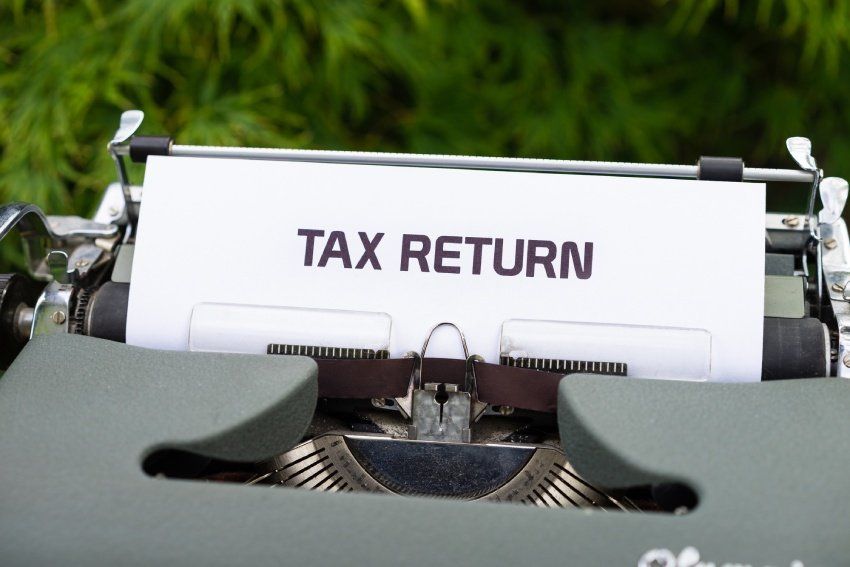Last Updated: April 5, 2024
Don't be late and delay your tax refund!

Disclaimer: We are not qualified legal or tax professionals and are not giving advice. Always speak with a qualified professional before making any legal or financial decisions.
As the new year rolls in, so does the impending tax season, bringing with it a mix of dread and the prospect of potential refunds. While the knee-jerk reaction might be to delay dealing with your taxes until the last possible moment, there are compelling reasons to reconsider and file early.
This year, embrace a proactive approach to your tax return. Not only could you expedite your refund or safeguard against identity theft, but you could also transform this annual chore into an opportunity for financial planning and peace of mind.
Let's dive into why starting your taxes sooner rather than later could be one of the best decisions you make this year.
Want to skip the article and speak directly to a debt specialist? Click here for a free consultation.
Eliminate Stress
The first reason to file early is that you get it over with. Why not file early and then sit back as your friends and neighbors race around on April 14 getting their taxes finished?
You can file as soon as you have all the needed documentation. For most people, that is right after February 1 when businesses are required to mail out their tax-related information.
Thwart Thieves
Identity thieves are always active, but they know that most people will get a tax refund so they are very active this time of year. The earlier you file, the more it keeps someone from filing using your social security number and claiming your refund.
The GAO (Government Accountability Office) estimated that identity thieves tried to steal $12.2 billion in 2016. The IRS managed to miss only $1.6 billion in fraudulent filings. Clearing up the mess will take months. To better understand the intricacies of tax deductions and ensure you're not overlooking any, consider exploring
5 Tax Deductions You're Probably Overlooking.
Get Your Refund Sooner
The sooner you file your taxes, the faster you will get your refund. It generally takes the IRS 21 days to process electronic returns and 6 weeks to process mailed returns. Claiming the Earned Income Credit (EIC), American Opportunity, or Additional Child Tax Credit can delay your refund by several weeks. If you qualify for any of these, claim them. The delay is worth getting the credit.
If the IRS has questions about your return, this will delay the refund as well. Be aware that all communication from the IRS comes through the mail. They do not call, text, email, or in most cases, show up on your doorstep. It's also important to note key dates, such as when taxes are due; learn more at
When Are Taxes Due.
More Time to Pay
If you owe the IRS money, filing early will give you more time to plan how to pay your tax bill. The full amount for individuals is due into the IRS on April 15, so knowing well ahead of time will allow you to come up with the money on time. This money is due even if you file an extension!
If you wait until the last minute and are unable to pay, the IRS will begin to charge interest and fees on April 16. This can get extremely expensive very quickly. ! Check out
What Is the Penalty for Filing Taxes Late?
Larger Refunds for Early Filers
The stats suggest that early filers get larger tax refunds. However, that is not because the IRS runs out of money or gets tired of processing tax forms. It's more because people who know they are owed larger refunds typically file early.
Easier Access to Tax Fliers
The sooner you submit your tax information to the filers, the faster they will get finished. Waiting until April 14 means that your tax filer will be overworked and overstressed.
If you have fairly simple taxes, you can file your own taxes using paper forms (available online or through your public library). Computer programs like Turbo Tax will help you file as well.
The IRS offers
IRS Free File for people making gross adjusted income under $72,000. This is an online service. For those making more than $72,000, there are Free File Fillable Forms on the IRS website. In addition, the Volunteer Income Tax Assistance (VITA) programs use trained volunteers to help you file your taxes for free. Find a location
near you, also please be safe this year and practice social distancing when choosing that option.
Be very careful when choosing your tax preparer. There are a lot of scams looking for gullible people. Companies offering loans or cash advances on your tax refund should be viewed with great suspicion. Always read the fine print and use well known, reputable companies.
Checking Your Refund
Once you have filed your taxes, wait 24 hours and then visit the IRS Where's My Refund page on their website. You’ll be able to see how long until you get your refund deposited into your banking account.
This is a great time to plan what to do with your tax refund. Set part of it aside into an emergency savings account before you pay down any debt. You’ll have a small cushion against the next emergency.
Stimulus Payments and Donations to Charity
Thankfully, none of the stimulus payments are considered taxable income. Even more thankfully, if you did not receive a stimulus payment or the full amount in 2020, you may be able to claim a credit on your tax return. You can visit
Recovery Rebate Credit to see if you are eligible.
If you made donations to charity in 2020, you may be able to add $300 to your standard deduction. Check qualifying organizations to see if your donations qualify. You may want to speak to a qualified tax preparer because deductions can be very confusing.
Preparing for Tax Season
Filing taxes can be stressful, but being organized and preparing in advance can make the process smoother. Here are some tips:
Gather Documents Early
Start collecting tax documents as early as possible, such as W-2s, 1099s, statements of interest or dividends, records of charity donations, etc. Set up a filing system, folder, or binder designated for tax paperwork. Having all paperwork streamlined ahead of time saves effort later.
Set Reminders for Deadlines
Mark your calendar with key dates, like when tax documents should arrive from your employer or bank when you plan to file, when taxes are due, and when refunds may arrive. Setting reminders removes the chance of missing critical deadlines.
Calculate Estimates
Use the IRS tax withholding calculator or online tax calculators to estimate your tax liability for the year before you file. This allows you to see if you might owe taxes or get a refund, letting you better plan financially.
Organize Paperwork
Sort documents into categories by source (employer, bank, etc.), type of income, type of deduction, etc. Organizing paperwork makes key data easy to access later during filing. Consider scanning or taking photos of documents as well for digital backup.
Meet with a Tax Pro Early
Consulting early with a tax preparer, accountant, or financial advisor can shed light on your overall tax picture. They can also discuss any credits you should track or changes in tax law that might impact you.
Common Tax Deductions
Many eligible taxpayers fail to claim deductions on their tax returns.
Mortgage Interest Deduction
If you have a home loan or home equity loan, you can likely deduct mortgage interest paid over the year, reducing your taxable income. This deduction has conditions around the loan amount and usage of the interest paid.
Student Loan Interest Deduction
You can deduct up to $2,500 per year in student loan interest paid on federal and most private student loans. This reduces the student debt burden and lowers your overall tax bill.
Medical Expenses Deduction
Your medical expenses such as bills for doctors, dentists, optometrists, hospital stays, prescription medications, medical equipment, and more that exceed 7.5% of your adjusted gross income are deductible on your tax return. So keep track of these expenses.
Charity Donations Deduction
If you made monetary donations to qualifying charities and non-profits, you can deduct these contributions and lower owed taxes. Be sure to retain receipts or bank records showing charitable gifts.
Consult a qualified tax preparer to confirm your specific eligibility for these and other potential deductions. Properly filing all eligible deductions results in maximum tax savings.
FAQs
Conclusion
Filing your taxes early has clear benefits - you can get refunds faster, have more time to pay if owed, and reduce stress. Being proactive by gathering documents, estimating liability, organizing paperwork, and consulting tax professionals sets you up for an easy, smooth filing process.
Don't leave money on the table; be sure to claim deductions like mortgage interest, student loan interest, charitable gifts, medical expenses, and more that you qualify for.
Every deduction lowers your tax burden. Get your complete, accurate tax return done early and make April 15 just another day instead of a frenzied deadline. Planning and seeking expert help guide you in filing taxes the smart way.
Pacific Debt, Inc
If you are so deeply in debt that no amount of refund is going to help out, you may need professional assistance. Give the debt relief professionals at Pacific Debt a call. They will help you understand not only the service that Pacific Debt, Inc. offers but also any other options that are available for your unique situation. The call is free and there is no obligation.
Pacific Debt, Inc. is an award-winning debt settlement company. If you’d like more information on how to get out of debt, we are happy to help. We will explain all your options and help you decide which is the best option for you. We can even refer you to trusted partners in our network who can better meet your needs.
If you have more questions, contact one of our debt specialists today. The initial consultation is free, and our debt experts will explain your options to you.
*Disclaimer: Pacific Debt Relief explicitly states that it is not a credit repair organization, and its program does not aim to improve individuals' credit scores. The information provided here is intended solely for educational purposes, aiding consumers in making informed decisions regarding credit and debt matters. The content does not constitute legal or financial advice. Pacific Debt Relief strongly advises individuals to seek the counsel of qualified professionals before undertaking any legal or financial actions.
Reduce Your Credit Card Debt By Up to Half

BBB Reviews | 4.9/5.0 Rating









 Do Not Sell My Personal Information
Do Not Sell My Personal Information